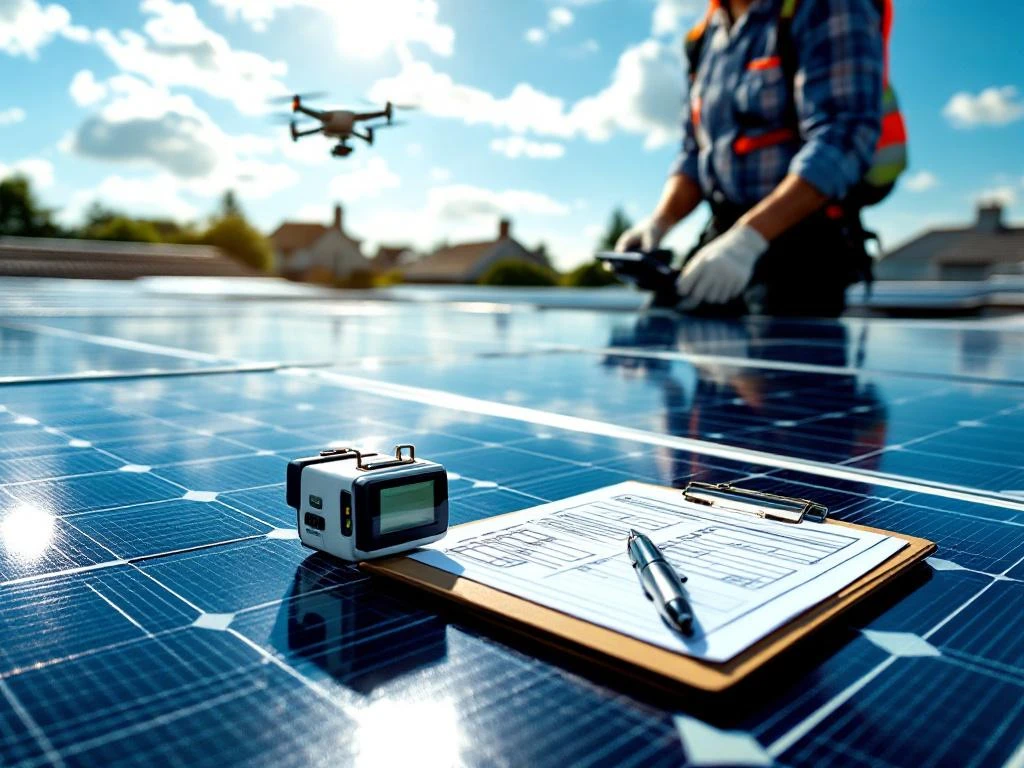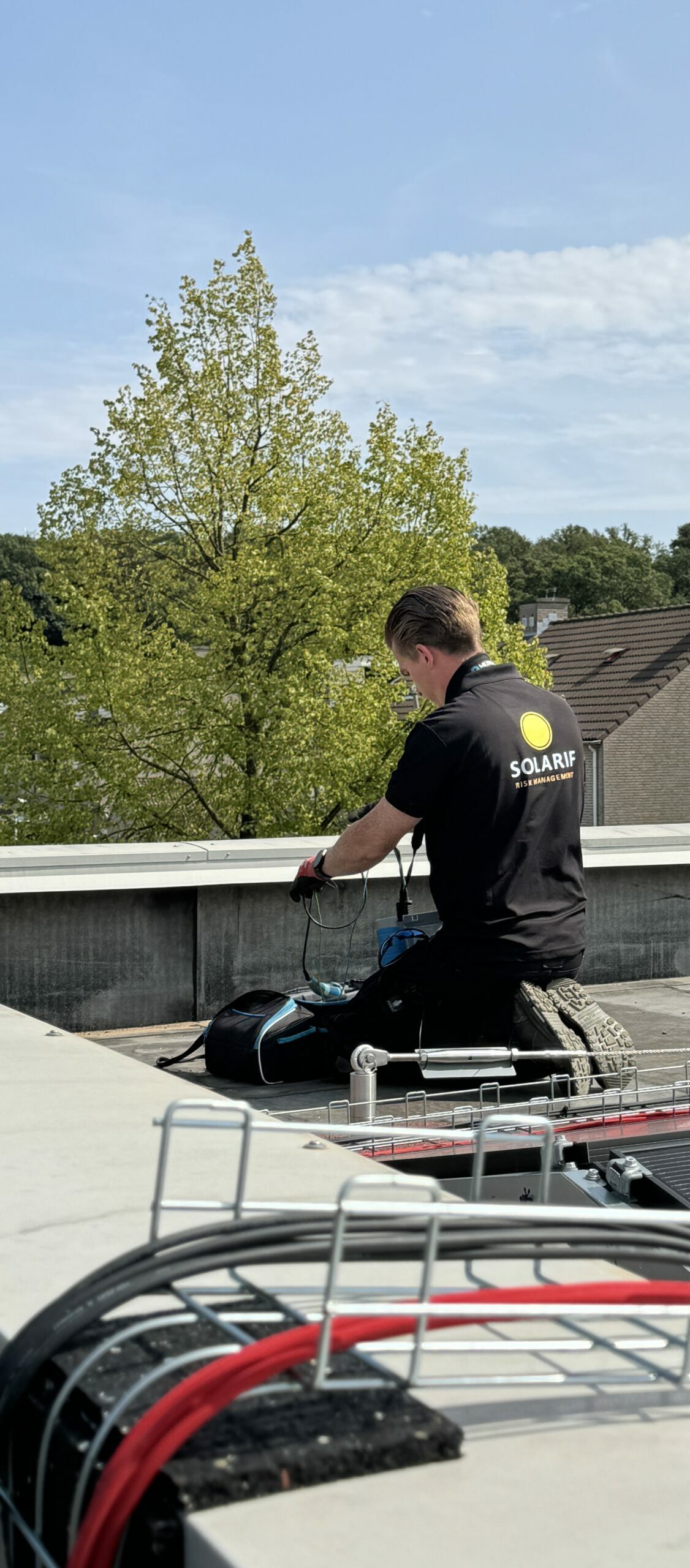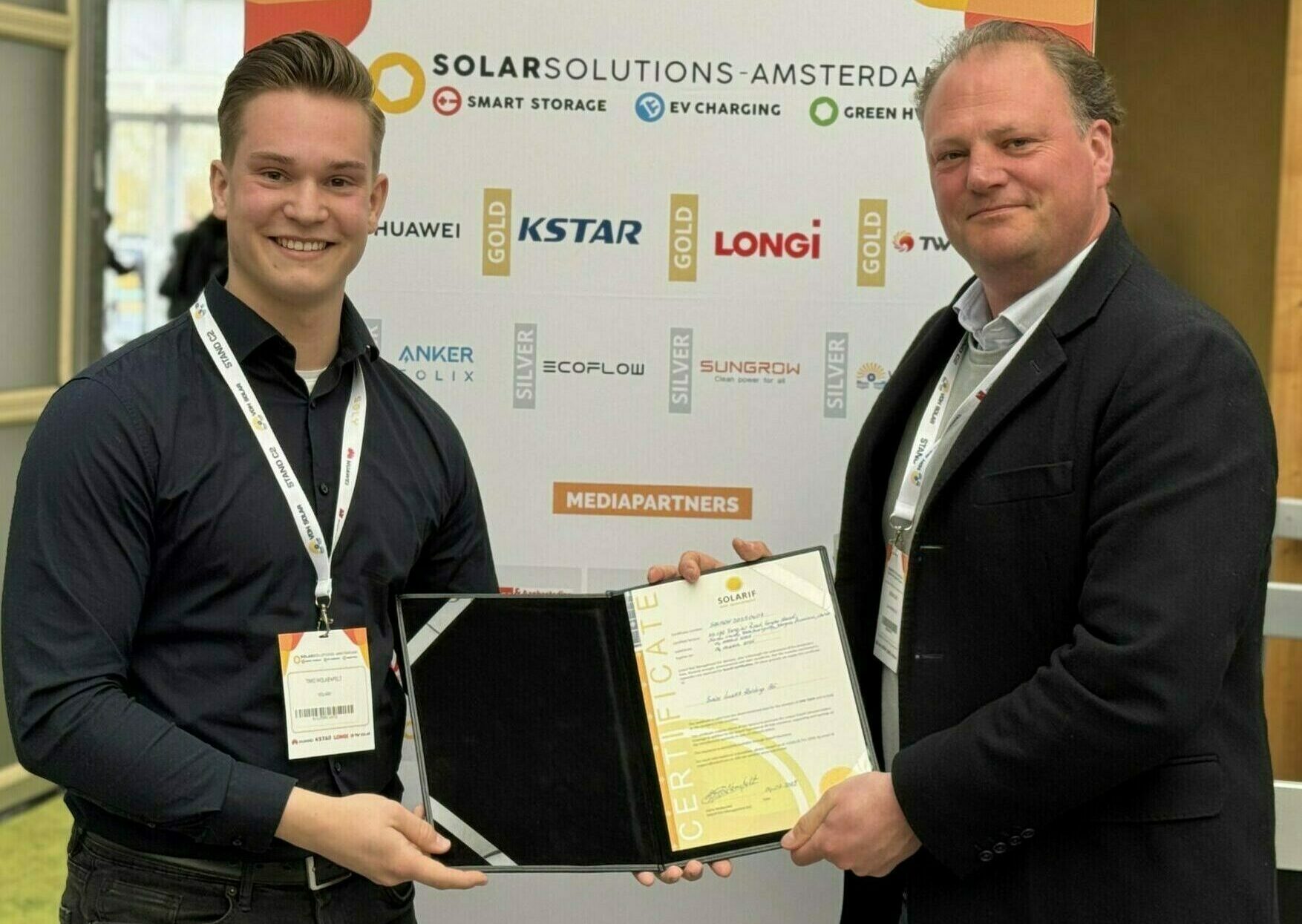Critical Qualifications Required for Scope 12 Inspectors in the Netherlands
Scope 12 inspectors in the Netherlands must hold valid SCIOS certification specifically for PV installations, possess extensive technical knowledge of electrical systems and Dutch building codes, and maintain up-to-date knowledge of solar installation standards. While not legally required for general solar panel ownership, Scope 12 inspections are mandatory when seeking insurance for commercial solar installations. Qualified inspectors must demonstrate proficiency in identifying safety risks, installation defects, and compliance issues that could affect system performance or pose hazards. Their expertise ensures solar installations meet insurance requirements and industry safety standards.

What is a Scope 12 inspection and why is it important?
A Scope 12 inspection is a specialized assessment of solar panel installations in the Netherlands focused on evaluating the quality, safety, and insurability of photovoltaic (PV) systems. This inspection was specifically developed for the Dutch market and the insurance industry to verify installation standards and identify potential risks.
It’s important to understand that a Scope 12 inspection is not legally mandatory for having solar panels installed. However, it is typically required by insurance companies if you want to insure your commercial solar installation. Without a positive Scope 12 inspection report (without findings), most insurers will not provide coverage for commercial PV systems, as they choose not to insure potentially unsafe installations.
Contrary to some misconceptions, completing a Scope 12 inspection does not provide discounts on insurance premiums. Rather, it’s a prerequisite for obtaining standard insurance coverage at normal rates. The inspection ensures your installation meets quality and safety standards, potentially preventing future problems and ensuring your system is insurable. You can learn more about Scope 12 inspection requirements and their importance for commercial solar projects.
What official certifications must Scope 12 inspectors hold in the Netherlands?
In the Netherlands, Scope 12 inspectors must possess SCIOS certification specifically for Scope 12 inspections of PV installations. SCIOS (in Dutch: Stichting Certificering Inspectie en Onderhoud Stookinstallaties) is the primary certification body overseeing technical inspections in various domains, including solar installations.

To obtain this certification, inspectors need to demonstrate:
- A formal technical education background, typically in electrical engineering or a related field
- Completion of specialized SCIOS-approved training programs for Scope 12 inspection
- Successfully passing both theoretical and practical examinations
- Registration with SCIOS as a certified Scope 12 inspector
Additionally, inspectors must maintain their certification through continuous professional development and periodic recertification. This ensures they stay current with evolving industry standards and regulations in the rapidly developing solar energy sector.
What technical knowledge is required for Scope 12 inspectors?
Scope 12 inspectors must possess comprehensive technical expertise across multiple domains related to solar installations. Their knowledge base must include:
- Electrical systems and standards: in-depth understanding of electrical engineering principles, DC/AC systems, wiring standards, and electrical safety protocols specific to PV installations
- PV technology knowledge: familiarity with different types of solar panels, inverters, mounting systems, and their specific requirements
- Dutch building codes and regulations: understanding of NEN standards (such as NEN 1010, NEN 3140) and NEN-EN-IEC standards (such as NEN-EN-IEC 62446-1 and NEN-EN-IEC 61439), SCIOS Technical Document 18, and (in Dutch:) Bouwbesluit requirements related to solar installations
- Safety protocols: knowledge of fire safety requirements, lightning protection systems, and emergency shutdown procedures
- Testing methodologies: proficiency in various inspection and testing techniques, including thermal imaging, IV curve testing, and insulation resistance measurements
This technical knowledge enables inspectors to identify potential issues that could compromise system performance, safety, or longevity. Inspectors must stay updated on evolving standards as the solar industry continues to advance.
How does someone become a certified Scope 12 inspector?
The path to becoming a certified Scope 12 inspector in the Netherlands involves several structured steps:
- Educational foundation: obtain relevant technical education in electrical engineering or a comparable field
- Gain practical experience: work in the solar or electrical industry to build hands-on knowledge
- Complete SCIOS-approved training: enroll in specialized Scope 12 inspector courses that cover theoretical knowledge and practical assessment techniques
- Pass certification examinations: successfully complete both written tests and practical assessments
- Register with SCIOS: officially register as a certified Scope 12 inspector
- Maintain certification: participate in continuing education and periodic recertification to stay current with industry developments
The entire process typically takes several years when accounting for the necessary education and experience. Many inspectors begin their careers in installation or electrical engineering before specializing in inspection services. Continuous learning is essential, as certification requires regular renewal through additional training and examinations.
What’s the difference between Scope 12 and other inspection types?
Scope 12 inspections are specifically focused on solar PV installations, while other inspection types have different purposes and scopes:
- Scope 12: Focuses exclusively on PV installations (solar panels only, not other forms of renewable energy), evaluating the quality, safety and insurability of solar systems. This inspection is required by insurers for commercial solar projects.
- Scope 8: Concentrates on general electric installations and their safety parameters.
- Scope 10: Examines general electrical installations on fire-safety based on NTA 8220
The key distinction is that Scope 12 was specifically developed for the insurance industry to assess solar installations. Unlike some other inspections that might be legally required for certain installations, Scope 12 is an insurance requirement rather than a legal mandate. Additionally, Scope 12 inspections are more comprehensive regarding solar-specific components and potential issues unique to PV systems.
It’s important to note that in certain cases, insurers may require Scope 12 inspections more frequently than the standard five-year interval, especially for high-value commercial buildings where business interruptions caused by solar system failures could result in significant financial losses. Rooftop solar installations typically represent a higher risk profile compared to roofs without such installations.

What should you check before hiring a Scope 12 inspector?
Before engaging a Scope 12 inspector for your commercial solar installation, verify these crucial qualifications:
- Valid SCIOS certification specifically for Scope 12 inspections
- Experience with similar solar projects in scale and complexity
- Knowledge of current Dutch solar industry standards and insurance requirements
- Professional liability insurance to cover potential errors or omissions
- References from previous clients, particularly those with similar installations
- Understanding of your specific solar technology (e.g., experience with your panel or inverter types)
Additionally, evaluate their inspection methodology and reporting process. A thorough inspector should explain how they conduct the assessment and what their reports include. Quality inspectors will be transparent about their process and willing to answer questions about their qualifications and approach.
Remember that choosing a qualified inspector is crucial—their assessment determines whether your installation is insurable and identifies potential safety or performance issues. For larger systems (>250kW), be aware that inspections may take a full day or more to complete properly.
Key takeaways about Scope 12 inspector qualifications
When considering Scope 12 inspector qualifications in the Netherlands, remember these essential points:
- Official SCIOS certification is mandatory for legitimate Scope 12 inspectors
- Inspectors must have extensive technical knowledge spanning electrical systems, PV technology, and Dutch building codes
- The certification process involves formal education, specialized training, and rigorous examinations
- Scope 12 inspections are not legally required but are mandated by insurers for commercial solar installations
- These inspections do not provide insurance discounts but are prerequisites for standard coverage
- Choosing a properly qualified Certified SCIOS Scope 12 inspector ensures your solar installation meets insurance requirements, quality standards, and safety standards
- Scope 12 inspections contribute to both fire safety and quality standards in the Dutch solar industry
For commercial solar projects, working with properly certified SCIOS Scope 12 inspectors is not just about compliance—it’s about ensuring system safety, performance, and insurability. By understanding the qualifications these professionals must possess, you can make informed decisions when verifying your solar installation meets the necessary standards for insurance coverage.
Contact us today
Ensure your solar installation meets safety and insurance standards. Contact us and book your Scope 12 inspection with a certified SCIOS inspector today!
📧 Email: support@solarif.com
☎️ Phone: +31 (0)26 711 5050




